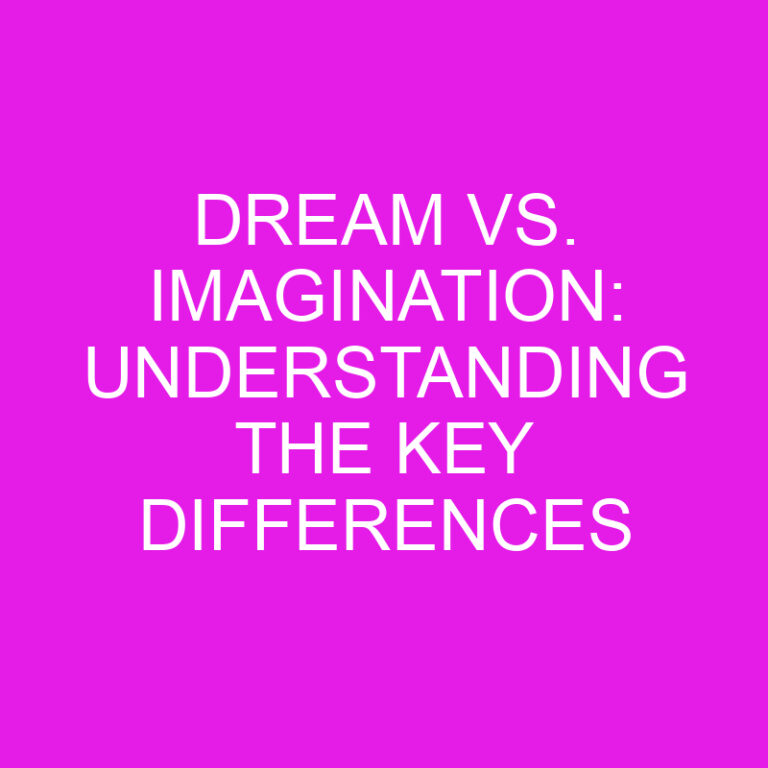
When it comes to seeking professional help for mental health concerns, it’s important to understand the roles and differences between therapists and psychologists. While these terms are often used interchangeably, there are distinct differences in their training, qualifications, and scope of practice. As someone who has navigated the world of mental health services, I want to shed light on the nuances between therapists and psychologists, so you can make an informed decision about the type of professional you may need.
Therapists, also known as counselors or psychotherapists, are professionals who provide talk therapy to individuals, couples, families, or groups. They typically have a master’s degree in counseling or a related field, and their focus is on helping clients address emotional, behavioral, and mental health issues. On the other hand, psychologists are mental health professionals who have completed a doctoral degree in psychology and are trained in both therapy and psychological assessment. They often specialize in diagnosing and treating mental disorders, conducting psychological testing, and conducting research in the field of psychology.
Understanding the differences between therapists and psychologists can help you make an informed decision about the type of professional you may need for your mental health concerns. Whether you’re seeking therapy for personal growth, relationship issues, or managing a mental health condition, it’s important to find the right professional who aligns with your specific needs and goals. So, let’s dive deeper into the distinctions between therapists and psychologists to help you navigate the world of mental health services with confidence.
Post Contents
Key Takeaways
- Therapists, also known as counselors or psychotherapists, provide talk therapy to address emotional, behavioral, and mental health issues with a focus on helping clients.
- Psychologists are mental health professionals who have completed a doctoral degree in psychology and are trained in therapy, psychological assessment, and research.
- Therapists typically have a master’s degree in counseling or a related field and specialize in specific areas such as marriage and family therapy, substance abuse counseling, or trauma counseling.
- Psychologists undergo extensive training, including a doctoral degree, clinical internship, and state licensing exam, and often specialize in areas such as clinical psychology, counseling psychology, neuropsychology, or forensic psychology.
- Therapists primarily focus on providing talk therapy and counseling services, while psychologists have a broader scope of practice that includes psychological assessment, diagnosis, and research.
- Therapists utilize evidence-based therapeutic techniques and collaborate with clients to create a therapeutic alliance based on trust, empathy, and respect. Psychologists integrate scientific research and clinical practice to tailor therapy approaches to individual needs.
- While therapists play a vital role in providing counseling and therapy services, psychologists are equipped to assess and diagnose mental health conditions, provide a wide range of evidence-based treatments, engage in research and education, and advocate for mental health awareness and prevention.
- Therapists take a holistic approach to therapy, considering clients’ physical, emotional, and social well-being, while psychologists often have specialized expertise in specific areas of mental health.
- Both therapists and psychologists aim to promote personal growth, alleviate distress, and improve overall well-being through their respective approaches to therapy.
Training and Qualifications of Therapists
When it comes to the training and qualifications of therapists, it’s important to understand the level of education and specialized training they possess. Here’s what you need to know:
- Education Levels: Therapists typically have a master’s degree in counseling or a related field. This extensive education equips them with the necessary knowledge and skills to provide effective talk therapy to individuals, couples, families, or groups.
- Licensing and Certification: In addition to their advanced degree, therapists must also obtain a state license or certification to practice independently. This process ensures that they meet certain professional standards and adhere to ethical guidelines.
- Specializations: Many therapists choose to specialize in specific areas of counseling, such as marriage and family therapy, substance abuse counseling, or trauma counseling. This allows them to develop expertise in addressing particular mental health concerns.
- Continuing Education: Therapists are also committed to ongoing professional development. They engage in continuing education programs and attend workshops and conferences to stay up-to-date with the latest research and advancements in the field.
- Supervision and Experience: During their training and early career stages, therapists often work under the supervision of experienced professionals. This provides them with valuable guidance and mentorship as they gain practical experience in the field.
It’s important to note that while therapists are highly skilled professionals, they do not typically have the same level of training and qualifications as psychologists. Therapists primarily focus on providing talk therapy and counseling services, whereas psychologists have a broader scope of practice that includes psychological assessment, diagnosis, and research.
Understanding the training and qualifications of therapists is crucial when seeking mental health support. By knowing what these professionals bring to the table, you can make an informed decision about the type of professional best suited to your specific needs and concerns.
Scope of Practice of Therapists
As a therapist, my scope of practice is focused on providing counseling and therapy services to individuals, couples, families, and groups. I work alongside my clients to address their mental, emotional, and behavioral concerns, and help them work towards their goals for personal growth and well-being.
Here are some key aspects of the scope of practice of therapists:
- Counseling Services: Therapists are trained to provide counseling services to individuals, helping them explore their thoughts, emotions, and behaviors in a safe and supportive environment. I use evidence-based therapeutic techniques to assist my clients in gaining insight, developing coping skills, and making positive changes in their lives.
- Client-Centered Approach: As a therapist, I take a client-centered approach, meaning that I tailor my counseling techniques and interventions to fit the unique needs and circumstances of each individual client. I work collaboratively with my clients to create a therapeutic alliance based on trust, empathy, and respect.
- Specializations: Many therapists choose to specialize in specific areas of counseling such as trauma, addiction, relationships, or mental health disorders. This specialized training allows therapists to develop expertise in these areas and provide targeted interventions and support to clients facing specific challenges.
- Continuing Education: To stay current in my field and provide the best possible care to my clients, I regularly engage in continuing education and professional development activities. This ensures that I am up-to-date with the latest research, therapeutic techniques, and ethical guidelines.
- Referral and Collaboration: While therapists are highly skilled in providing counseling services, there are certain situations where a referral to a psychologist or another mental health professional may be appropriate. I collaborate with other professionals when necessary to ensure that my clients receive the most comprehensive and effective care.
It’s important to understand the scope of practice of therapists when seeking mental health support. While therapists play a vital role in providing counseling and therapy services, psychologists have a broader scope of practice that includes psychological assessment, diagnosis, and research. Understanding these distinctions can help individuals make informed decisions about the type of professional that best suits their needs.
Training and Qualifications of Psychologists
As a psychologist, my training and qualifications are extensive, allowing me to provide a comprehensive range of mental health services. Let’s delve into the training and qualifications required to become a psychologist.
To begin with, psychologists must complete a doctoral degree in psychology. This degree typically takes around four to six years of graduate study. During this time, aspiring psychologists acquire a deep understanding of the human mind, behavior, and emotions.
Once the doctoral degree is obtained, psychologists often embark on a supervised clinical internship, which can last anywhere from one to two years. This hands-on experience provides crucial opportunities to apply theoretical knowledge and gain practical skills in a clinical setting.
Furthermore, psychologists must also pass a state licensing exam to practice independently. This exam assesses their knowledge and competency in various areas of psychology, ensuring that they meet the necessary standards to provide high-quality care.
In terms of specialization, psychologists have the option to choose a particular area of focus to enhance their expertise. Some popular specializations include clinical psychology, counseling psychology, neuropsychology, and forensic psychology. This allows psychologists to develop specialized skills and knowledge to better address the specific needs of their clients.
Additionally, continuing education is an integral part of a psychologist’s career. As the field of psychology evolves and new research emerges, it’s crucial for psychologists to stay up-to-date with the latest advancements. Continuing education ensures that psychologists remain informed about evidence-based practices and can provide the most effective and relevant treatments to their clients.
To summarize, psychologists undergo rigorous training and education to ensure they possess the necessary qualifications to provide comprehensive mental health services. From completing a doctoral degree to obtaining licensure, psychologists are equipped with the knowledge and skills to address a wide range of psychological concerns.
Stay tuned for the next section, where I’ll shed light on the scope of practice for psychologists and how it differs from therapists.
Scope of Practice of Psychologists
As a psychologist, I have a broad scope of practice in the field of mental health. My training and qualifications enable me to provide comprehensive services to individuals, couples, families, and groups. Let me explain the various aspects of a psychologist’s scope of practice:
Assessment and Diagnosis: One of the key roles of a psychologist is to assess and diagnose mental health conditions. Using evidence-based assessment tools and techniques, I can evaluate individuals for a wide range of psychological disorders and conditions. This process involves gathering information through interviews, observation, and psychological testing.
Therapy and Counseling: Psychologists are trained in various therapeutic approaches to provide effective and evidence-based treatment for mental health concerns. I utilize different treatment modalities like cognitive-behavioral therapy (CBT), psychoanalysis, humanistic therapy, and more. These approaches are tailored to meet the unique needs of each client and aim to promote personal growth, alleviate distress, and improve overall well-being.
Interventions and Techniques: Psychologists are trained in a wide range of interventions and techniques to address different mental health challenges. These techniques may include relaxation techniques, problem-solving skills, stress management, anger management, coping strategies, and more. I am committed to using evidence-based practices that have been proven to be effective in addressing specific mental health concerns.
Consultation and Collaboration: Psychologists often collaborate with other professionals, such as physicians, psychiatrists, social workers, and educators, to ensure a comprehensive approach to mental health care. I may provide consultation services to other professionals, offer advice on treatment planning, and collaborate with them to provide the most suitable care for clients.
Research and Education: Many psychologists are actively involved in research, contributing to the advancement of knowledge in the field of psychology. This research helps to improve our understanding of mental health conditions and develop more effective interventions. Additionally, psychologists engage in continuing education to stay updated with the latest research and developments in the field.
Advocacy and Prevention: Psychologists also play a crucial role in advocating for the rights and well-being of individuals with mental health concerns. We work to promote awareness, reduce mental health stigma, and advocate for policies that support access to quality mental health care. Additionally, psychologists are involved in preventative efforts, such as providing education and resources to promote mental health and prevent the onset of psychological disorders.
Differences in Therapy Approaches
When it comes to therapy approaches, both therapists and psychologists bring unique perspectives and techniques to the table. Here, I’ll highlight some of the key differences in the way they approach therapy:
1. Therapist’s Focus on Talk Therapy:
Therapists, such as licensed professional counselors (LPCs) or licensed marriage and family therapists (LMFTs), often specialize in talk therapy. They focus on providing a safe and nurturing space for clients to explore their thoughts, emotions, and experiences. The emphasis is on establishing a strong therapeutic relationship and fostering personal growth through open and honest dialogue.
2. Psychologist’s Integration of Science and Practice:
Psychologists, on the other hand, bring a unique perspective that integrates both scientific research and clinical practice. With a solid foundation in evidence-based treatments, psychologists use their training and expertise to tailor therapy approaches to each individual’s specific needs. They draw from a variety of theoretical frameworks, such as cognitive-behavioral therapy (CBT), psychodynamic therapy, and humanistic therapy, among others.
3. Therapists’ Holistic Approach:
Therapists often take a holistic approach to therapy. They consider clients’ physical, emotional, and social well-being, taking into account their individual circumstances and life situations. Therapists may use techniques such as mindfulness, relaxation exercises, and stress management strategies to promote overall well-being and personal growth.
4. Psychologists’ Specialized Expertise:
Psychologists, with their extensive training and education, often have specialized expertise in various areas of mental health. Whether it’s working with specific populations like children or veterans, or addressing particular issues like trauma or addiction, psychologists have a deeper understanding of complex psychological conditions and can provide specialized interventions accordingly.
5. Therapists’ Client-Centered Approach:
Therapists typically adopt a client-centered approach, focusing on the needs and goals of their clients. They offer empathy, understanding, and support, creating a safe environment for clients to explore their feelings and perspectives without judgment. Therapists often guide and empower clients to find their own solutions and make positive changes in their lives.
Conclusion
Understanding the differences between therapists and psychologists is crucial when seeking mental health support. Therapists and psychologists have distinct training and qualifications that shape their approach to therapy. Psychologists undergo extensive education, including a doctoral degree, supervised clinical internship, and state licensing exam. They integrate scientific research and clinical practice to tailor therapy approaches to individual needs. Psychologists also have specialized expertise in various areas of mental health.
Therapists, on the other hand, often specialize in talk therapy and take a holistic approach to therapy, considering clients’ physical, emotional, and social well-being. They adopt a client-centered approach, focusing on the needs and goals of their clients and guiding them to find their own solutions.
By understanding these differences, individuals can make informed decisions about the type of professional that best suits their needs. Whether seeking therapy or psychological assessment, both therapists and psychologists play vital roles in promoting mental health and well-being.
Frequently Asked Questions
Q: What are the differences between therapists and psychologists?
A: Therapists and psychologists differ in their training, qualifications, and scope of practice. Psychologists complete a doctoral degree in psychology, a supervised clinical internship, and pass a state licensing exam. They can specialize in different areas of psychology. Therapists often specialize in talk therapy and take a holistic approach to therapy, considering clients’ physical, emotional, and social well-being.
Q: What is the role of psychologists in therapy?
A: Psychologists integrate scientific research and clinical practice in therapy. They tailor therapy approaches to individual needs, drawing from various theoretical frameworks. Psychologists have specialized expertise in different areas of mental health and can help clients with a wide range of concerns.
Q: What is the focus of therapy provided by therapists?
A: Therapists typically adopt a client-centered approach, focusing on the needs and goals of their clients. They guide clients to find their own solutions and promote personal growth and well-being.
Q: Why is it important to understand the differences between therapists and psychologists?
A: Understanding these differences is crucial in making an informed decision about the type of professional needed for mental health concerns. Knowing the qualifications, training, and scope of practice of therapists and psychologists helps ensure that individuals receive appropriate and effective treatment.






